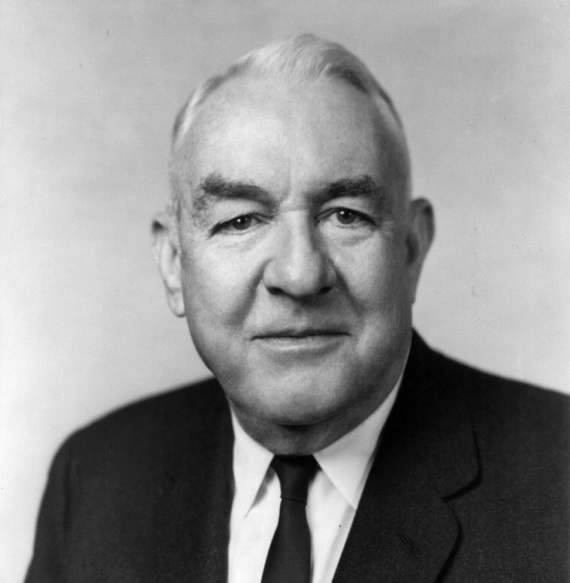In honor of Senator Sam Ervin’s birthday, September 27, from his Preserving the Constitution; The Autobiography of Senator Sam Ervin, Jr., 1984, The Michie Company, Charlottesville, Virginia, pp. 160-161
During 1963, Attorney General Robert F. Kennedy appeared before the Senate Judiciary Committee to present drastic civil rights proposals of the Kennedy Administration. As an opponent of these proposals, he and I staged for days what the news media called the “Sam and Bobby Show.” At the outset, I stated that I could understand why his brother, the President, wished to abolish literacy tests. His signature revealed, I asserted, that he could not write.
The Attorney General had a penchant for invoking statistics to sustain his opinions. I undertook to refute the inferences he drew from them by this anecdote.
An old South Mountaineer in Burke County had been buying his groceries on credit from the neighborhood grocer. Believing it time to make payment for them, the old Mountaineer asked the grocer for the amount of his bill, and complained with vigor that it was exorbitant when the grocer told him what it was. The grocer thereupon opened his account books, laid them on the counter, and told the Mountaineer, “here are the figures; you know figures don’t lie.” The old Mountaineer responded, “figures may not lie but liars sure do figure.”
Since I desired my humor to illuminate but not wound, I hastened to add, “And honest men also figure, and in so doing, often reach incorrect conclusions.”
Like many Northerners who advocated civil rights proposals, Attorney General Kennedy had a simple explanation for illiteracy among blacks in the South. Its sole cause, in his view, was State discrimination against blacks in education. This explanation was too simplistic. The South suffered in times past from much illiteracy among both whites and blacks. Southern States were too poor in the aftermath of the Civil War to maintain adequate schools. The poverty of their parents oftentimes necessitated keeping children out of the inadequate schools that did exist because their labor was essential to the family support. Besides, illiteracy sometimes resulted from laziness, or a contempt for education.
Inasmuch as I was the only opponent of his civil rights proposals who habitually appeared at meeting of the Senate Judiciary Committee, the Attorney General obviously tried to embarrass me by discrediting my home State, North Carolina. He announced that the census of 1960 revealed that North Carolina was the habitat of about 30,000 illiterate blacks, and asserted that such revelation showed that North Carolina discriminated against blacks in education.
I asked him what census disclosed with respect to the ages of blacks illiterate in North Carolina. He disclaimed any knowledge of that fact, and said that North Carolina had compulsory school attendance laws for many years and that I would surmise that most of the illiterate blacks residing in it were adults when he was born.
After the Senate Judiciary Committee recessed I studied the census of 1960 for myself. I discovered that my surmise in respect to the ages of illiterates in North Carolina was correct. I also discovered to my surprise, and to Attorney General Kennedy’s consternation, that the census of 1960 disclosed his home State, Massachusetts, numbered among it inhabitants about 60,000 illiterate whites.
When I made this disclosure to the Committee, I assured the Attorney General that I did not maintain it proved that Massachusetts discriminated against whites in education.







